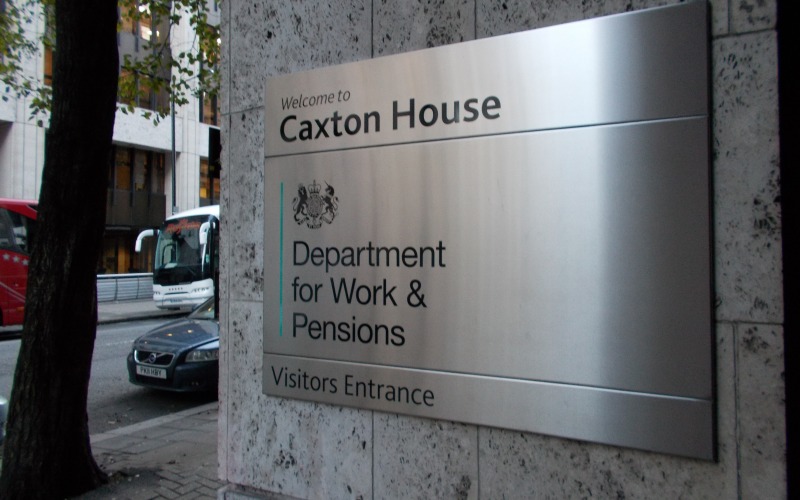The government is facing calls for a “fundamental rethink” of its approach to Access to Work (AtW), after new figures showed the number of disabled people receiving support through the employment scheme fell last year.
At its peak, in 2009-10, under the last Labour government, AtW was supporting more than 37,000 disabled people a year, but this plunged under the coalition to 30,780 by 2011-12.
In the following three years, the number of claimants slowly climbed back towards its peak, but the figures released this week show they fell again last year, from 36,780 in 2014-15 to 36,470 in 2015-16, with the numbers of existing and new claimants both falling.
The government has said that Access to Work is crucial to achieving its promise to halve the disability employment gap, and has pledged to spend about £123 million a year on the scheme by 2020, compared to about £100 million presently, supporting an extra 25,000 people a year.
But Deaf and disabled campaigners have consistently warned of the “weekly battles” many claimants are facing to continue receiving support through the scheme.
Ellen Clifford, a spokeswoman for the StopChanges2ATW campaign, said the new figures were “of little surprise”.
She said: “At the StopChanges2ATW campaign we continue to hear on a weekly basis about the battles individual Deaf and disabled people are facing and what some are describing as ‘willful incompetence’, with forms continuously lost, resulting in delayed payments.”
She said Access to Work was “extremely effective” and had been shown to make a profit for the Treasury.
But she said that the way it was being run was adding “an additional layer of difficulties on top of the everyday workplace discrimination and barriers to employment that Deaf and disabled people face”.
She said: “There is a clear ideological position underpinning this approach which considers that anyone accessing taxpayer’s money should have to continually and extensively justify their need for it while [the government tries] to reduce individual awards.
“All of this is counter-productive to a disability employment support programme that works.
“If the government are serious about halving the disability employment gap and improving the reach of Access to Work then they should start listening to Deaf and disabled people and rethink their fundamental approach to it.”
Disabled activist David Gillon said that for the AtW figures to drop at the same time the government was reporting more disabled people moving into work “strongly suggests that employers are cherry-picking those disabled people with minor restrictions on working and that those with more fundamental access issues remain as excluded from the workplace as ever, if not more so”.
He said the figures showed that the Department for Work and Pensions’ (DWP) “ever increasing bureaucracy around AtW, and a bureaucracy aimed at restricting claims, not enabling them, is having an ever more strangling effect on the scheme”.
Gillon said that he and other disabled activists with a focus on employment issues have long argued that the government’s Disability Confident campaign – which urges employers to “see the ability, not the disability” – is “simply encouraging employers not to consider the access needs of disabled potential employees”.
He said: “These new AtW figures would seem to confirm that this is now happening.”
And he said that the only possible explanations for a fall in AtW claimants nearly two years into a period of post-recession growth were either “incompetence or design”.
According to the Office for National Statistics, there were 3.335 million disabled people in jobs in the first quarter of 2016, an increase of about 120,000 on the same period in 2015.
Gillon said: “That the Tories took a benefit that actually showed a 1.4:1 return on investment, slashed it, and continue to make it harder than ever to access, suggests that they continue to hold a deep-seated ideological contempt for the scheme and the idea of supporting disabled people into work, even when it should make substantial sums of money for the Treasury if left to flourish unhindered.”
A DWP spokeswoman said there had been a fall of less than one per cent in the number of AtW users and the department was “continuing to work with jobcentres, businesses and local organisations to promote the scheme”.
She said: “As the scheme is demand-led, the figures reflect this and therefore vary year on year.”
She said the figures showed an increase in the number of people with hearing and sight impairments, learning difficulties and mental health conditions claiming AtW, as well as record numbers of AtW recipients aged between 16 and 24.
She said: “The spending review in the autumn announced a real-terms increase in funding, starting in 2016-17, to raise numbers helped by this demand-led service by 25,000 by the end of the parliament.
“In order to meet this commitment, we are promoting the scheme through Disability Confident, as well as working with jobcentres, businesses and local organisations to increase awareness.
“We’re committed to closing the disability employment gap: just last week the government accepted all of Paul Maynard MP’s recommendations on improving accessibility of apprenticeships [to people with learning difficulties].
“This includes better promotion of Access to Work to these groups.”

 Access to Work cuts risk ‘decimating’ disability arts movement, disabled artists and consultants warn
Access to Work cuts risk ‘decimating’ disability arts movement, disabled artists and consultants warn ‘Access to Work showed me a working life was still possible… now Keir Starmer has put that at risk’
‘Access to Work showed me a working life was still possible… now Keir Starmer has put that at risk’